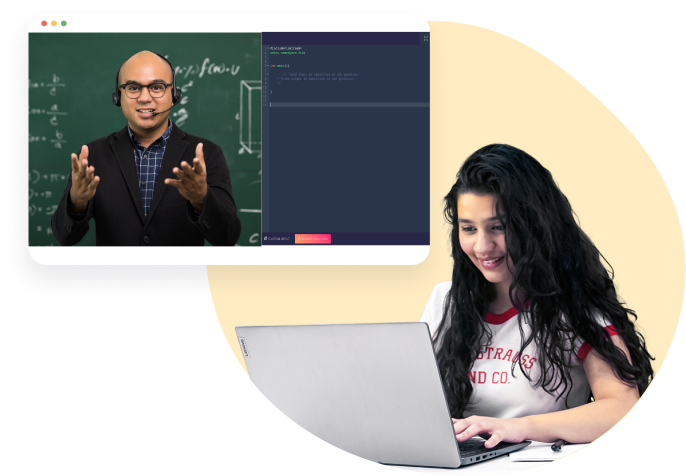Python training provides an essential foundation for individuals looking to enter the world of programming and data science. It covers fundamental concepts such as variables, data types, and control structures, enabling learners to write basic scripts and solve problems. More advanced topics include object-oriented programming, libraries, and frameworks, which broaden the scope of what can be achieved with Python. Hands-on exercises and real-world projects help solidify understanding and improve practical skills. The training is suitable for beginners and those with some coding experience, making it accessible and versatile. Python's simplicity and readability make it an ideal choice for learning programming. As Python is widely used in various industries, acquiring proficiency in it opens numerous career opportunities.

₹15,000
4.8
12K+ Learners enrolled
100 +
Duration(Hours)
350+
Problems


Watch classes any time at your convenience

Catch up on the course when life is calling you elsewhere



A structured curriculum that makes learning easy

Practice code problems of varying difficulty

Engagement coach to keep you motivated

Compile & run in an integrated coding environment

1:1 sessions over voice call & chat with our skilled teaching assistants




1:1 Mock interviews with resume and career guidance

Structured feedback to make you better

Get a chance to be referred to your mentors’ company

Skill-based hiring across all levels of experience



Average salary hike

Transitions to product companies

Trusted placement partners
Career Advancement:
Enhance your resume and skill set to increase your employability in various fields such as software development, data analysis, and automation.
Project Development:
Learn how to build and manage projects from scratch, including web applications, scripts for automation, and data processing tools.
Professional Growth:
Transition into roles that require Python programming skills, such as data scientist, machine learning engineer, or software developer.
Academic Progress:
Support academic pursuits with knowledge in Python, which is widely used in research and educational projects.
Personal Development:
Develop problem-solving skills and the ability to create useful tools and applications to simplify everyday tasks.


















__init__ constructor methodsuper() function








